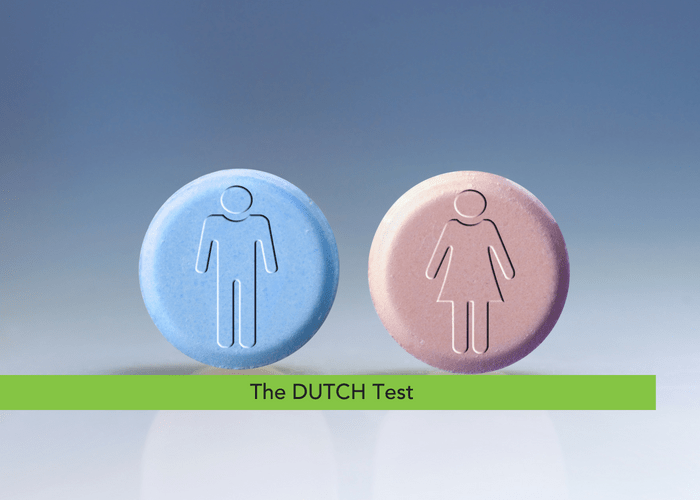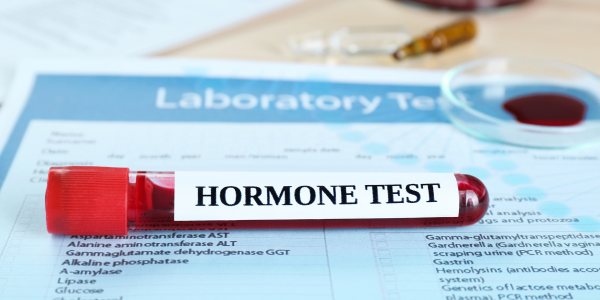

The DUTCH Test
Hi, I’m Dr. Emily Parke with your Functional Health Minute. Today, I’d like to talk about how to fully evaluate both male and female sex hormones as well as adrenal hormones. In two previous videos, I mentioned how to do a blood evaluation for both male and female sex hormones, which is definitely where you start, because if there are disturbances in the blood you can be assured that there are definitely disturbances in hormones going on in the body.
DUTCH
However, to really get a full picture of what’s going on inside the body, I like to do something called a DUTCH test, which stands for dried urine testing of comprehensive hormones. This really gives a full picture of what’s going on with DHEA, cortisol, all the different types of estrogen, estrone, estriol, estradiol, progesterone, testosterone, dihydrotestosterone. How you’re doing with methylating your hormones, which is part of how you detoxify them, and it can actually help tell what risk factors you may have, and if you’re not doing a good job detoxifying your hormones, we can see that on the test.
So, it is a really complex soup how your hormones are synthesized. In other words, how they’re made, and how they are detoxified, meaning how they exit the body. I’m just going to show you this really quickly.
Hormones and Enzymes
This is a picture of how complicated the hormone pathway is, and the DUTCH test that I was mentioning actually evaluates every single step on here. Now this is important because all these little arrows between things, these are what are called enzymes, so enzymes turn one thing into another thing, which is a golden opportunity for us to intervene, because each pathway can be either up-regulated, meaning push it faster, or down-regulated, meaning slow it down. So depending on what’s going on with your hormones, it gives us a great idea on how to intervene, and sometimes it’s as simple as foods to add to the diet. Sometimes it’s supplements, and sometimes we do have to intervene with medications if pathways are severely pushed in the wrong direction until we can get control of everything.
And, of course, true to functional medicine, and balancing hormones, it’s really important to have all the lifestyle factors in check: nutrition, sleep, exercise, and movement stress management. In addition, the DUTCH test also gives us some other information that’s really useful. It will tell us your melatonin levels, and as you know, melatonin is a hormone related to sleep, and it will also give us something called 8-OHDG, which is a measure of DNA damage, so if there is some kind of cellular damage going on inside the body. That’s all included in the DUTCH test, and that is the most comprehensive way to evaluate hormones in both males and females.
This is Dr. Emily Parke with your Functional Health Minute for today.
Share:
Social Media
Most Popular Posts
Subscribe To Our Newsletter
Related Posts

New Podcast Episode: My journey into functional medicine + what I’ve learned
I’m excited to share that I recently joined DeLo for Episode 165 of the On the DeLo podcast! In this conversation, we explored my journey

Understanding the Essential Labs for Women on Hormone Replacement Therapy (HRT)
So what are the minimum labs we’re looking at when we do hormone replacement therapy? We obviously want to look at an estrogen level, so

How to figure out the right amount of HRT in women
What about checking lab values when you’re on hormone replacement therapy? I do find it to be helpful, but we also want to consider symptoms.

Did you know there’s a difference between food allergies, sensitivities, and intolerances?
Did you know that there’s a difference between food allergies, food sensitivities and food intolerances? Food allergies, the reactions tend to happen pretty immediately and
